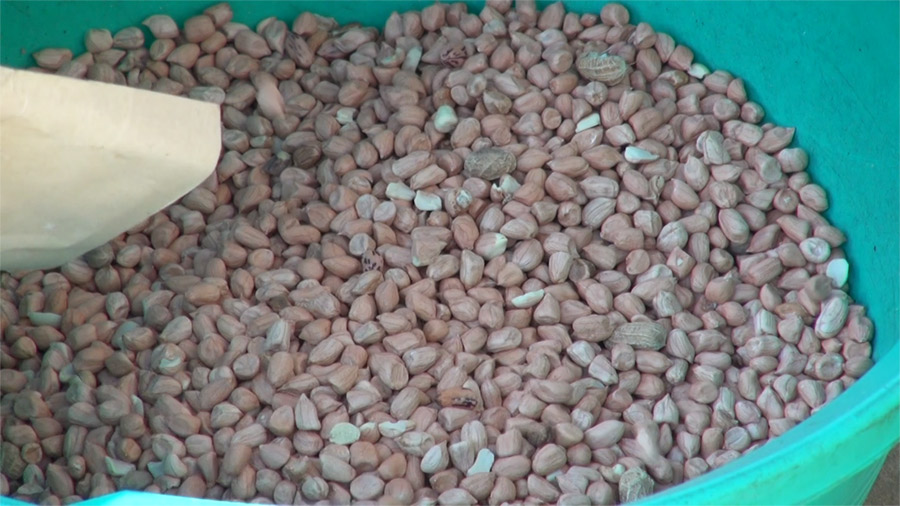
Initially launched with a team of DeSuups in 2022, the Druk Arachis peanut processing unit at Doksum in Trashi Yangtse now sees only one man as its solitary operator after his companions left for newer opportunities. In addition, the lack of demand for his products is affecting in scaling up production. After the unit was established, the production of peanut among farmers in Khamdang Gewog has doubled.
32-year-old Jamyang Tenzin from Gangzur Gewog in Lhuentse resigned from the civil service to start the business. He was trained in peanut processing and product development through the DeSuung Skilling Programme.
Initially started as a group venture, all his partners have now left for other jobs.
Jamyang’s day begins by putting the groundnut in the shelling machine to peel off the cover. After removing the outer shells, he collects them in a container and then lay them out on a plastic sheet. He then roasts them in a roasting machine. The nuts are then spread on the plastic sheet to cool.
He then adds few ingredients like flour, oil and sugar to the nuts. The mixture is then cooked in oil to make coated peanut product.
He makes coated peanut, peanut butter, peanut Ezay, candy, salted peanut and cookies which are supplied to shops and hotels in Trashi Yangtse and neighbouring districts. Besides, One Gewog One Product shop in Thimphu is his main consumer.
“After starting the business, financial constraint is the main challenge in expanding production. I don’t have a lot of saving, and I tried to borrow from others but it is difficult to get. I even tried to avail myself of loan from banks, but I could not get so far. It has been around three years that I have been trying to get a loan.”
Last year he collected seven tonnes of groundnut, worth nearly six hundred thousand ngultrum from the farmers of Khamdang Gewog.
Without much demand, his products remain idle. Currently, he earns around Nu 30000 monthly. He also tries to sell his products using social media platforms.
He shares his knowledge to aspiring young entrepreneurs when he gets time.
If he receives financial assistance, he has plans to buy peanuts from across Bhutan and increase his unit’s production.
“I am planning to extract peanut oil in the future, the reason is that there are not many people doing that. Of course, there are a few individuals who extract peanut oil for self-consumption, but they don’t produce it on a commercial scale. So, my plan is to produce peanut oil that would be enough to distribute across Bhutan.”
The One Gewog One Product programme provided Nu 300,000 to support the establishment of the unit.
The district administration and the Agriculture and Forests Ministry’s Commercial Agriculture and Resilient Livelihoods Enhancement Programme (CARLEP)supported the unit with construction of its structure and procuring processing equipment.
Around 150 households of Khamdang Gewog supply peanuts to the unit.
Sonam Darjay, Trashi Yangtse
Edited by Kipchu









